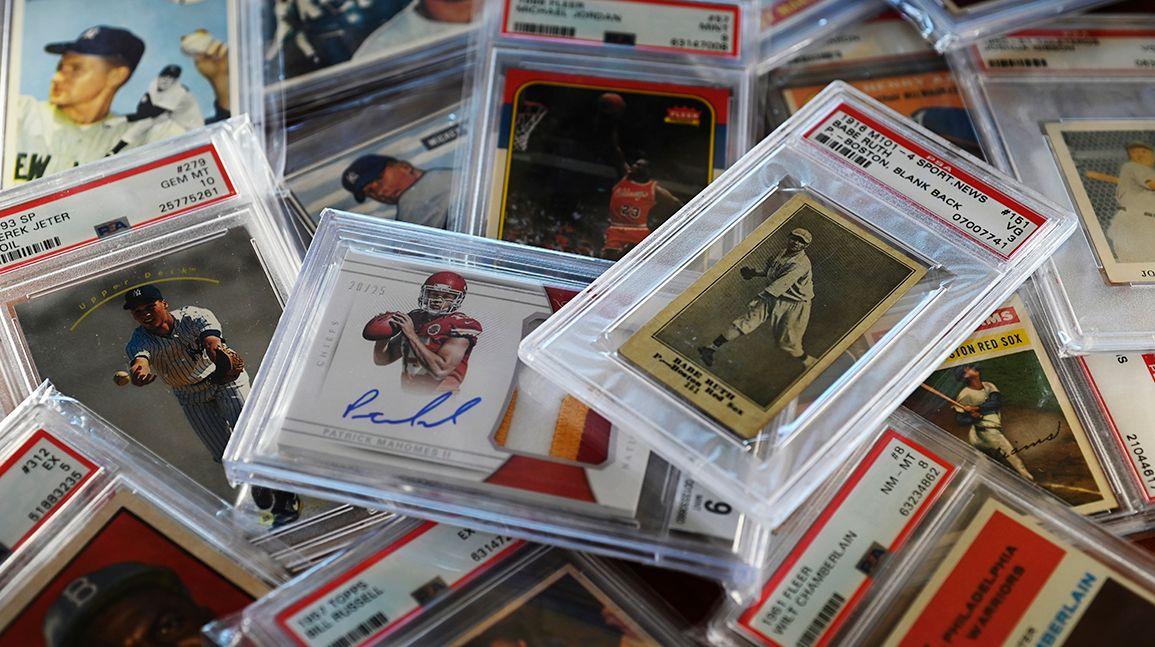The hobby has been furious for the last month.
Admissions and accusations of shill bidding have shaken collectors' confidence and turned up the temperature on social media and in online forums.
When bidders have no confidence that online auctions are fair and the final prices are real, the system feels rigged and unfair.
And that has sparked anger. A lot of anger.
The issue of shill bidding — which is essentially defined as bidding on an item with the intent to artificially increase its price or desirability. — became front and center when high-end collector Patrick Ryan was banned from Fanatics Collect after saying he mistakenly bid on his own item on the platform.
Ryan then went on a podcast with Dr. James Beckett the following week, and the issue reached a fever pitch when the two discussed “defensive shilling” to prevent buyers from getting items below market value.
And now the heat has reached a boiling point with the failure of Rick Probstein's snype site. The former eBay power seller's auction platform shut down after just 22 days, following massive technical glitches. Hobby insiders accused Probstein's flawed tech of exposing user information and said Probstein's personal account bid thousands of times on items on his own site.
Probstein has yet to answer the accusations — yet he announced his return to eBay on Monday, ignoring the elephant in the room and proceeding as if it was business as usual.
The outrage is understandable. When bidders lose confidence or are labeled as "idiots," the system breaks down. People want to know there is integrity to the buying process.
So, how do we fix it?
Sadly, the issue here is more than individual bad actors. The market lacks transparency, and things are probably even worse than even the conspiracy theorists on social media know.
Bids are constantly being rigged. Items are quietly not paid for, including some that go for millions of dollars. And the auction houses never tell consumers they didn't get paid. Those prices then become the stepping stones for the next item. The truth is many comps are not really comps. There are a lot of them that are built on a house of cards.
The laws are also murky. Probstein's terms and conditions, like the rules at many large auction houses, said employees could bid on their own auctions as long as they pay for them. If they win an item, they won it fair and square. Of course, a skeptic will ask, "How do we know whether something got paid for?"
Fifteen years ago, I was reporting everything that sold on eBay as fact. I got a phone call one day from a guy who said, "You are part of the fraud."
I was confused, but he told me that just because an item closes at a number doesn't mean that number is good.
Today, we at cllct, wait until something is recorded on Terapeak before we report it because it allows us to say it was a real comp because it was paid for.
eBay's terms and conditions clearly state shill bidding is illegal. This is, of course, a paper tiger. There's no way to enforce this. People consign their items and then bid on them under a different account. They get friends to bid on them. No one is checking.
But if we, as a hobby, want to regain some shred of confidence, we need help from lawmakers. The issue is that big, and the stakes that high.
There's a reason auction houses and sellers have purposely moved to Arizona because that state provides very lenient rules. No reserves have to be disclosed. No seller bids have to be disclosed. And whether the item was bought or not doesn't have to be disclosed.
We must encourage our attorneys general to put protections in place that prohibit shill bidding in all forms. Auction houses and sellers should not be involved in the bidding process.
And, while publicized reserves are probably OK, irrevocable bids are not what this hobby wants.
As far as eBay goes, the online auction giant should use its power to turn terms and conditions into laws. Sellers aren't scared to bid on their own items today. That needs to change.
The hobby has spent a lot of time yelling at bad actors over the past month. It's right to be upset with those people and hold them accountable.
But we need to aim even higher and push for action that will lead to real change. A broken system demands it.

